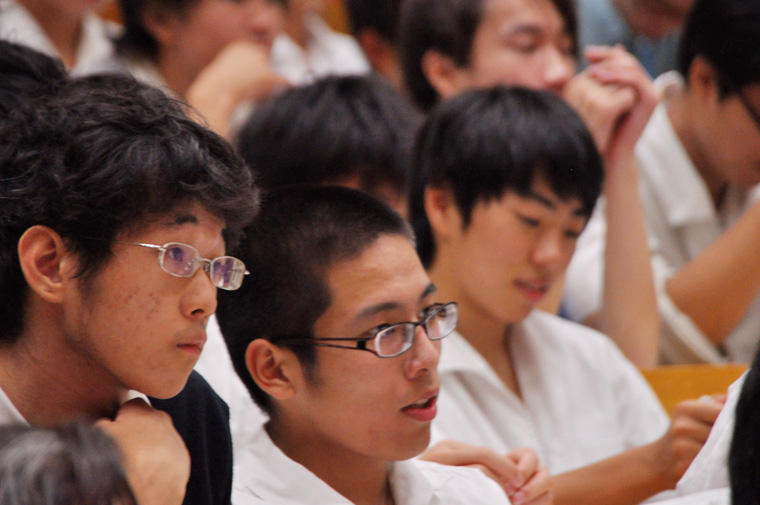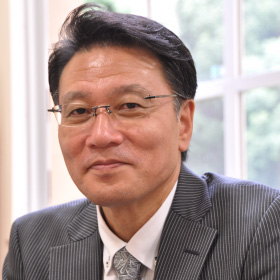In the third Global Career Course, Takeshi Sekiya, a professor at the School of International Studies at Kwansei Gakuin University, spoke about the ideal figure of a global person and what ‘the World’ is. The participants were 11th graders (second grade high school students). The lecture gave them a chance to consider their approaching college studies and their future careers after graduation.
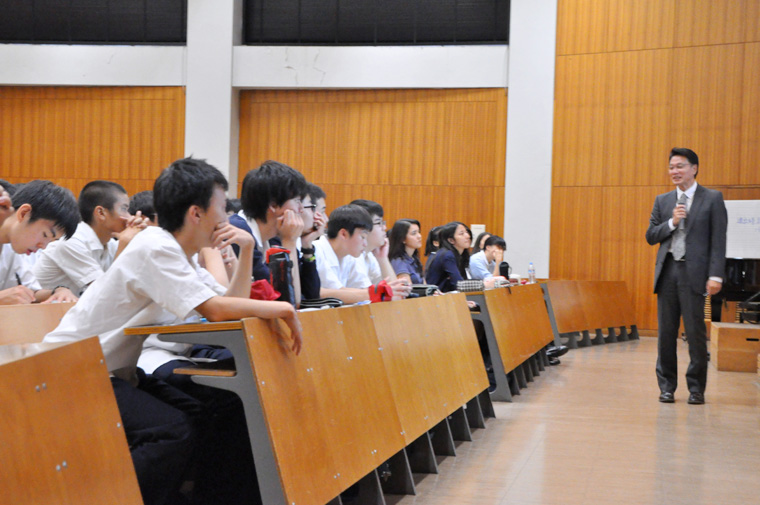
Kwansei Gakuin University produces a high number of students who go on to work in international organizations like the United Nations, and Prof. Sekiya’s seminar takes an innovative approach where the students are sent to the United Nations as interns. The lecture was half as long as a usual university. Prof. Sekiya’s clear way of speaking brought focus to the lecture and all of the participants were able to concentrate on his ideas.
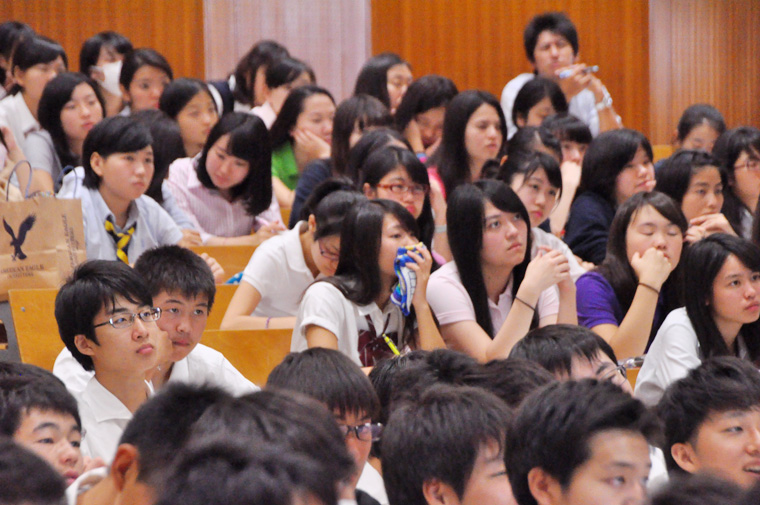
When asked “when you hear the word the world, what country comes into your mind?” The students generally answered that it was the United States or some European country. Then, they realized that most Japanese people tend to associate those countries with the word, and other countries are forgotten. He also explicitly raised the issue of Japanese people having uniform values due to the insularity and historic background. Most don’t really know about ‘the world’ or even Japan because their ideal countries are Western ones. For this reason, Japanese people should go abroad.”
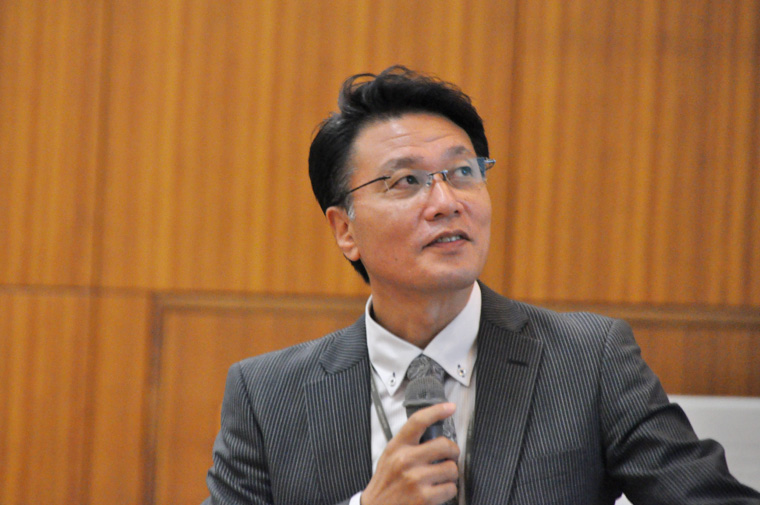
He continued, “let’s look at schools around the world.” Then, showing pictures of schools in Ghana, Papua New Guinea, Honduras, Guatemala and so on, he described their current situations. “If you receive an education like the ones offered here that means you are elite in the world, and you must not think of only yourselves. So, you have to train your eyes on Japan while seeing the world as a mirror of Japan. This is the main reason Japanese people have to go abroad,” he said. All the students felt the power of this idea.
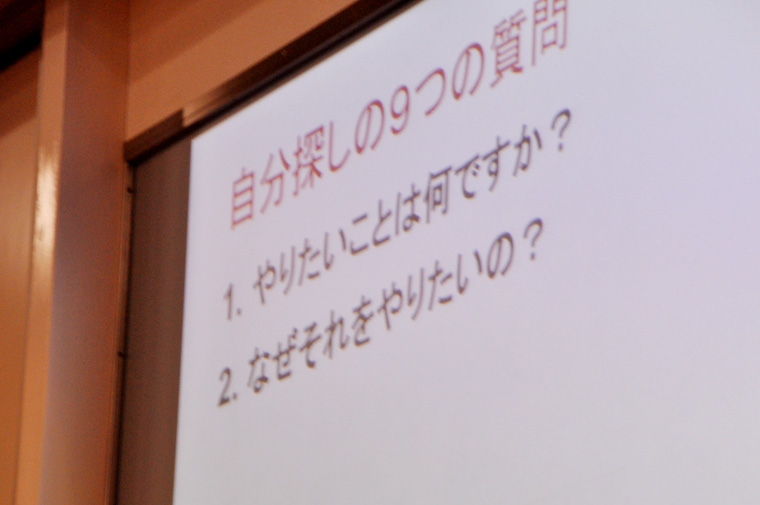
Then, Prof. Sekiya next showed the work “Nine Questions to Discover Yourself,” which is done in his seminar, too. “What do you want to do? Why do you want to do it? What is your dream? What is it that you should do?” The students themselves tried thinking about those questions. After that Prof. Sekiya said, “as a matter of fact, these questions were set for an African girl”. He then showed her answer: she wanted to become a doctor and serve her country. She thought about how she could help and serve other people rather than focusing onher own achievement. When the students heard this, they fell silent.
Prof. Sekiya continued, “my seminar’s students, too, realized their ideas may be self centered and their views may be too narrow when they heard her answer.”
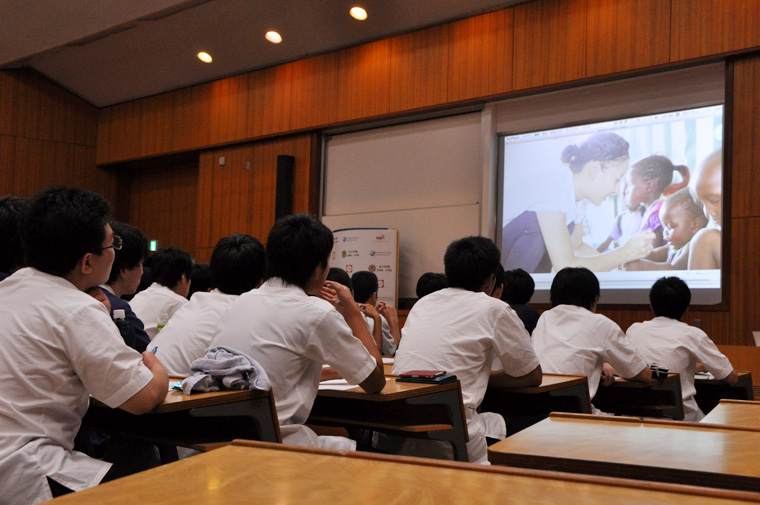
Then, the students watched a video of a female student who was dispatched to Namibia. Seeing a Japanese girl who was of their generation and active there, they were inspired very much.
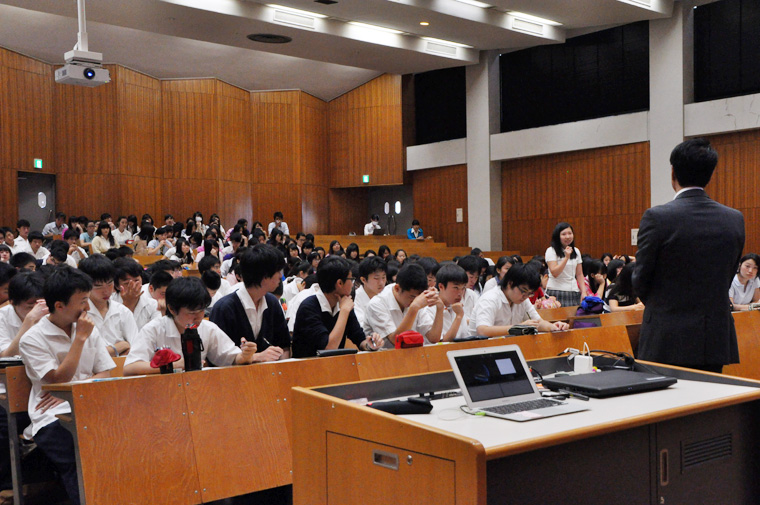
Finally, Prof. Sekiya and the students had a very meaningful question and answer session. One said “I’m going to study science at college. Is the science useful for international volunteer activities?” “Absolutely”, Prof. Sekiya responded. “Japanese people are often leaders in technology.” ”What technologies and skills are needed on the global stage?” asked another. Prof. Sekiya replied “It’s a very good question. Do not regard Japanese standards as the global standards. You should actually go to foreign countries, think about what technologies are needed there and share your own thoughts. It is true international cooperation.”
